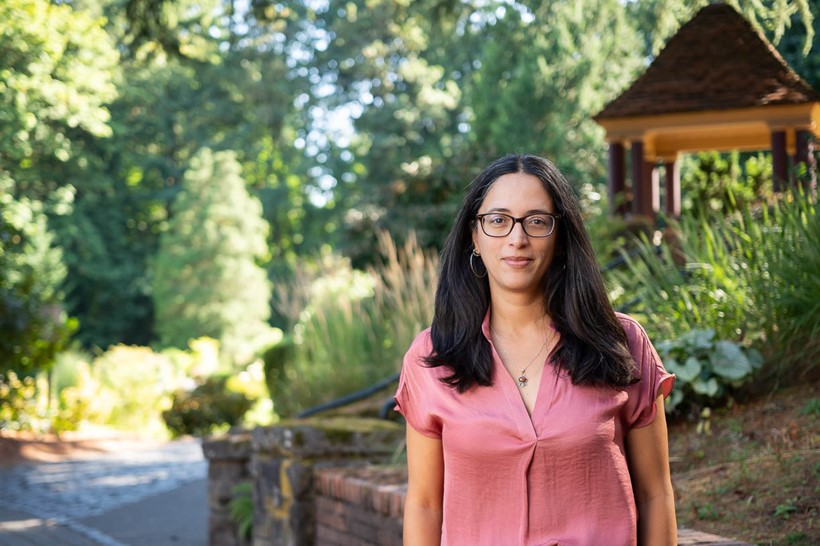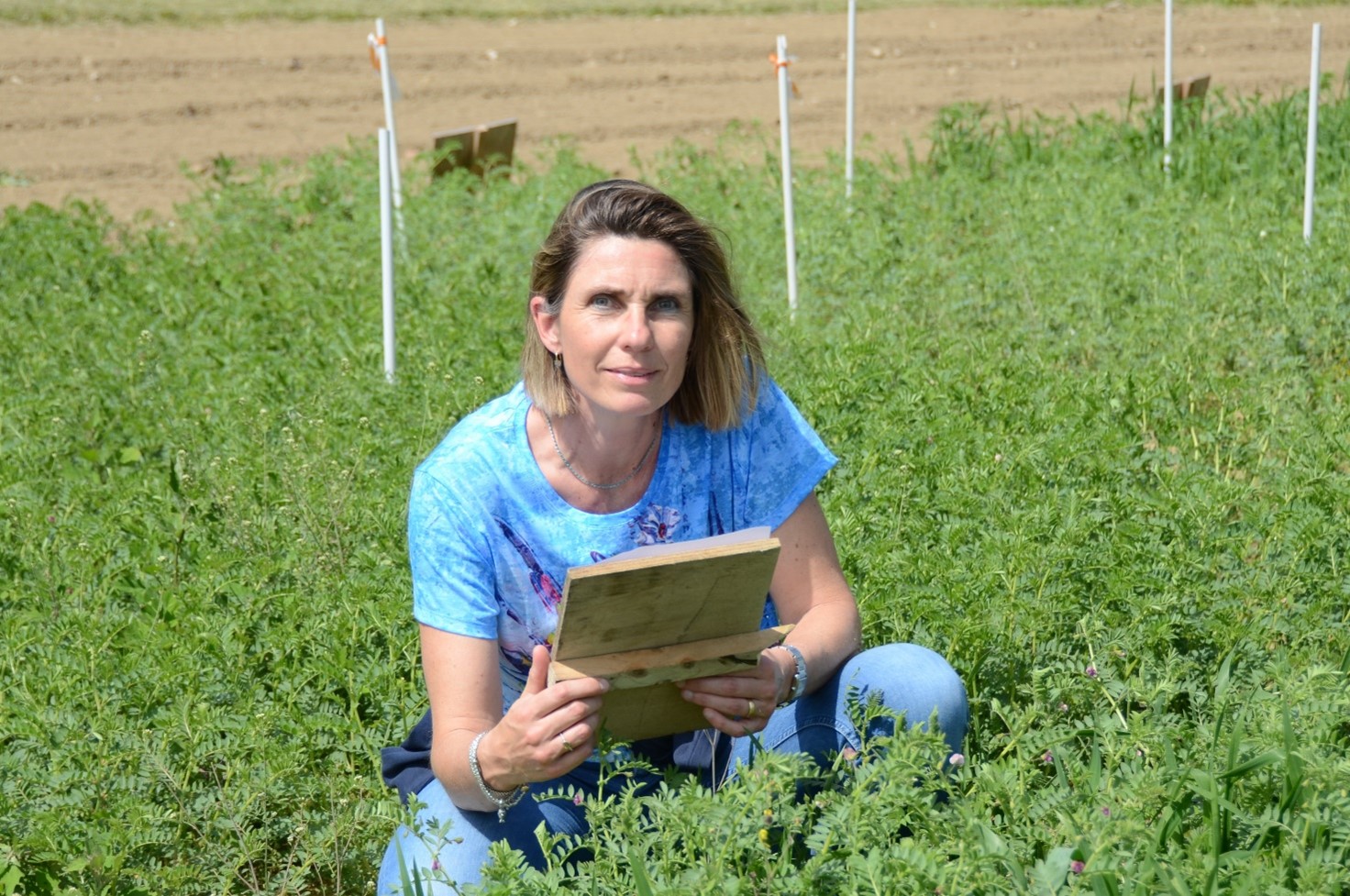Program Chair: Kris Wyckhuys, Chrysalis Consulting
Entomologists at the forefront of integrative systems thinking
Over the past decades, insect biodiversity has undergone a precipitous decline in many parts of the developed and developing world. This trend has been especially pronounced on farmland – where habitat loss, agricultural intensification and agrochemical pollution are prominent drivers – and has transpired in a progressive decay of vital ecosystem services. To resolve the (insect) biodiversity crisis and trace more sustainable trajectories for global agriculture, scientists have repeatedly called for holistic ‘systems approaches’, a close integration of (natural, social) science disciplines and added attention to ecosystem services.
Ever more often, scientists are being urged to consider the farming system as a ‘whole’ instead of as the sum of its parts, and to devise more sustainable agricultural practices by reaching across disciplinary divides. In the entomological domain, this need is particularly pressing as silo attitudes are rife and inter- or transdisciplinary collaboration remains rare. For instance, though an increased uptake of non-chemical crop protection offers tangible benefits for soil health, animal pollination, biodiversity conservation and vegetation restoration, entomologists that operate within those domains seldom collaborate with crop protection scientists. Reductionistic approaches often prevail and simple, add-on recipes are preferred over integrative measures. Similarly, preventative, non-chemical measures make up the foundation of integrated pest management (IPM) – yet, actual uptake of such measures is hampered by insufficient attention to social-economic parameters, a disregard of farmer perceptions or improper integration with agronomic facets of real-world production systems e.g., crop breeding, irrigation or soil science.
Yet, in recent years, this call for system-centric approaches is finally being heeded. In emerging fields such as agroecology, ecological intensification or regenerative agriculture, scientists consciously reach out beyond their own disciplinary boundaries, consider a broader suite of (social, ecological; above- and below-ground) system strata and make smart use of the myriad natural functionalities that exist within farmland ecosystems. Agronomists, pollination ecologists, breeders, economists, plant pathologists and entomologists now join hands in pursuit of grander goals. One wonders: may disciplinary ‘silos’ across the broad entomological spectrum at last disintegrate? Might a dissolution of those boundaries help to bolster the resilience of farmland in the face of intensifying and intertwined stressors? Could entomologists perhaps become frontrunners in the drive towards ‘transformative’ change of agri-food production systems?
In this Specialized Session of the ESA International Branch (IB), we will have a panel of 4 plenary speakers who have successfully transcended disciplinary boundaries and viewed agricultural sustainability issues through a ‘systems’ lens. Together with the (online) audience, we will explore ways to mobilize e.g., soil health, biological control and pollinator conservation strategies in an integrative manner and to tactically deploy those at field, farm and agro-landscape scales. We hope that this ESA-IB Specialized Session will drive a new wave of more holistic entomology science and ultimately result in a global advancement of more resilient, resource-frugal and pest-suppressive farming systems.
Plenary Speakers
Heidi Liere, Lewis and Clark College 
I am an assistant professor in the Biology Department at Lewis and Clark College, in Portland Oregon. I hold a Ph.D. in Ecology and Evolutionary Biology from the University of Michigan. As an insect community ecologist/agroecologist, one of the main objectives of my work is to understand the links between biodiversity and ecosystem function and services. In the past 10 years, my work has focused on urban agricultural systems where my collaborators and I look at the factors related to garden and landscape management practices that affect beneficial insects and the ecosystems services they provide.
Relative strength of social, environmental, and spatial filters for insect species assembly in urban community gardens
The metacommunity approach is ideal for understanding how communities of organisms are filtered across fragmented habitats. In human-managed systems, such as cities, environmental and spatial filters traditionally modeled in metacommunity models are likely also influenced by socio-economic and socio-demographic factors. Thus, traditional metacommunity concepts of environmental and spatial filtering need to be adapted to include links to social factors. Here I present a study where we examined the relative effects of environmental filters (defined as biophysical characteristics of gardens influenced by local-scale management), spatial filters (defined as distance between gardens influenced by landscape-scale management), and social filters (defined as neighborhood socio-economic and socio-demographic metrics) on the community composition of cultivated and non-cultivated plants, pollinators, and natural enemies (arthropod predators and parasitoids) in urban gardens and determine which metacommunity models best explained community assembly processes. We surveyed the species composition of cultivated (crops and ornamentals) and non-cultivated plants (“weeds”), as well as pollinators and natural enemies in 23 community gardens in the California Central Coast. We then correlated community dissimilarity or beta-diversity between gardens with environmental dissimilarity, spatial distance, and social dissimilarity. We found that, with the exception of cultivated plants, all groups fit a metacommunity model indicative of dispersal limitation. In addition, we found that environmental filters, including garden management factors, have a strong influence on community composition of cultivated and non-cultivated plants as well as on pollinators but not on natural enemies. Since communities that are strongly limited by dispersal are prone to local extinction events, we recommend follow-up studies to examine how to improve dispersal of non-cultivated plants, pollinators and natural enemies between green habitats in urban spaces.
Martijn Bezemer,
Institute of Biology, Leiden University, The Netherlands
Martijn Bezemer is professor at Leiden University, The Netherlands. He obtained his PhD degree from Imperial College, UK, and previously worked at UC Berkeley on biocontrol, and at Wageningen University and The Netherlands Institute of Ecology on aboveground-belowground interactions. He is an ecologist and leads a group that studies interactions between plants, insects and microbes. He works on both agricultural and natural systems, and a major aim is to learn from nature to improve crop health and resistance against pests. Soil, plant and insect microbiomes are central in many of the research projects and his group studies how to steer these microbiomes and the key players in the microbiomes to improve crop quality, biocontrol, alter insect performance or speed up nature restoration.
Using soil microbiomes to improve aboveground insect pest control in agriculture
Agricultural soils house an overwhelming abundance and diversity of living (micro)organisms, the soil microbiome. Although research on insect pests of crops often does not consider this belowground component of the agroecosystem, this soil microbial community can greatly influence the interactions between plants and insect herbivores that occur aboveground. In this presentation I will show examples from our work how the soil microbial community can influence aboveground insect herbivore performance, directly, and indirectly via changes in the host plant. Interestingly, the soil microbiome is very dynamic and malleable, and I will also discuss ways how to steer the soil microbial community to improve crop health and resistance against insect pests, or to improve biocontrol of pests.
Anna Camilla Moonen, Sant'Anna School of Advanced Studies, Pisa, Italy
Dr. Anna-Camilla Moonen is an agroecologist focusing her research on the development and promotion of sustainable cropping systems following a landscape agronomy approach and applying agroecological principles. She applies these principles to vegetation management in and around cropped fields with the objective to maximize synergies between vegetation and beneficial organisms to foster ecosystem service provisioning.
development and promotion of sustainable cropping systems following a landscape agronomy approach and applying agroecological principles. She applies these principles to vegetation management in and around cropped fields with the objective to maximize synergies between vegetation and beneficial organisms to foster ecosystem service provisioning.
The future of weed management in agroecosystems – optimization of weed-insect interactions
I will set the scene by describing the role of weeds in agroecosystems looking at their functional traits, weed ecology and the relevance of this for understanding their interactions with the crop and with beneficial insects. Subsequently, I will share some ideas about how cropping systems and farmers can be freed from the treadmill of ever-increasing external inputs by increasing the ecosystem service provisioning potential of agroecosystems through functional weed and vegetation management.
Sandrine Petit, INRAE French National Research Institute for Agriculture, Food and Environment Department of Agroecology, France
I am a landscape (agro)ecologist developing research on the impacts of land use change on farmland biodiversity and associated ecosystem services. I lead research projects on field-scale and landscape-scale drivers of arable communities (weeds, arthropods) and pest control services, with a focus on weed regulation by seed-eating predators. I coordinate the French national long-term monitoring network on biodiversity and ecosystems services in agricultural landscapes which focus on the management drivers of biodiversity and biological pest control at multiple scales.
farmland biodiversity and associated ecosystem services. I lead research projects on field-scale and landscape-scale drivers of arable communities (weeds, arthropods) and pest control services, with a focus on weed regulation by seed-eating predators. I coordinate the French national long-term monitoring network on biodiversity and ecosystems services in agricultural landscapes which focus on the management drivers of biodiversity and biological pest control at multiple scales.
Integrating predictive modelling into participatory approaches to quantify spatial interdependencies between farmers in the delivery of pest control services
Effective management that enhances the role of natural enemies in controlling weeds and insect pests can help achieve the critical goal of reducing pesticide use in modern agriculture. However, current efforts to achieve this goal tend to focus on changing practices at the field level, overlooking the fact that pests and their natural enemies are also influenced by ecological processes that extend beyond individual fields and farms. This situation requires farmers to consider how their own management decisions and those of their neighbours can affect pest control in individual fields across landscapes. Here I report on the implementation of a transdisciplinary approach in several French landscapes that addresses this need. The approach combines stakeholder participatory workshops to develop plausible scenarios of changes in farming practices and predictive modelling based on long-term data on pest control services and landscape-scale farming practices. The outcome could be visualised through a spatially explicit simulation tool that mapped the amount of pest control delivered in response to the scenarios envisaged by farmers. In all case study landscapes, we predict that the changes farmers envisage will promote natural pest control, and that the benefits for the individual farmer will be much greater if all neighbouring farmers also adopt the change on their own farm. We also show that the stakeholders' perceptions on collective action was modified and we illustrate how they have mobilized the findings derived from this transdisciplinary approach to identify key actions they would be willing to undertake collectively in their landscape.
Kris A.G. Wyckhuys, Chrysalis Consulting / University of Queensland / Chinese Academy of Agricultural Sciences CAAS
Kris A.G. Wyckhuys is a Belgian bio-science engineer and entomologist (PhD, 2005, Purdue). Kris works as an independent consultant exploring nature-friendly solutions to pest control in both temperate and tropical settings. His work is aimed at promoting biological control under an IPM umbrella and at devising sustainable farming systems that are protective of human and environmental health. Over the past 25 years, he has gained hands-on expertise in a range of cropping systems including smallholder maize in Central America, cotton in China, tropical fruits in the Andes and soybean in the US Midwest. Kris is presently involved in several research / integrated rural development projects in Asia, Latin America and Europe. He is a Guest Professor at the Chinese Academy of Agricultural Sciences CAAS (China), Honorary Associate Professor at University of Queensland (Australia) and Jinshan Scholar at Fujian Agricultural and Forestry University (China). Previously employed at the CGIAR as tropical fruit entomologist (in Colombia) and cassava entomologist (in Vietnam), Kris is a passionate advocate of biodiversity friendly agriculture and has over 150 publications in peer-reviewed journals.
Purdue). Kris works as an independent consultant exploring nature-friendly solutions to pest control in both temperate and tropical settings. His work is aimed at promoting biological control under an IPM umbrella and at devising sustainable farming systems that are protective of human and environmental health. Over the past 25 years, he has gained hands-on expertise in a range of cropping systems including smallholder maize in Central America, cotton in China, tropical fruits in the Andes and soybean in the US Midwest. Kris is presently involved in several research / integrated rural development projects in Asia, Latin America and Europe. He is a Guest Professor at the Chinese Academy of Agricultural Sciences CAAS (China), Honorary Associate Professor at University of Queensland (Australia) and Jinshan Scholar at Fujian Agricultural and Forestry University (China). Previously employed at the CGIAR as tropical fruit entomologist (in Colombia) and cassava entomologist (in Vietnam), Kris is a passionate advocate of biodiversity friendly agriculture and has over 150 publications in peer-reviewed journals.
Systems thinking for sustainable pest management - introductory remarks
Despite decades-long efforts to advance integrated pest management (IPM), its core objectives are not being met. Pest threats continue to proliferate, pest-induced losses mount and pesticide usage rates increase unremittingly. More often than not, IPM science yields few concrete, desirable and ‘real-world’ outcomes. In this ESA-IB Specialized Symposium, we put our fingers on the pulse of IPM: we spotlight some of the most pressing shortcomings of pest management science and list ways in which these can be remediated. Drawing upon two recent literature review exercises, we show how lots of valid and important research is being conducted across the globe. Yet, this research is 1) primarily geared towards input substitution i.e., the replacement of synthetic inputs with other therapeutic tools that are admittedly more environmentally-benign while disregarding opportunities for transformative change, and 2) suffers from inordinate amounts of abstraction, a near-total disregard of the social sciences and disciplinary specialization or so-called ‘silo approaches’. The next five talks will offer ways to resolve these deficiencies through more holistic, interdisciplinary ‘systems’ approaches and showcase how IPM science can thus be put back on the right track.
Carmen Blubaugh,
University of Illinois, Crop Sciences Dept
Carmen Blubaugh is an agroecologist at the University of Illinois. She practices systems thinking by examining how and where biodiversity among insects, plants, and soil microbes might strengthen crop protection. With deep respect for the challenging work of diversified farming, she prioritizes farmer perspectives by engaging with them in on-farm sampling.
Crop rotation diversification begets diversity across trophic levels
Diversifying maize/legume rotations with cover crops, pasture rotations, and alternative cash crops is a key action that farmers can take to regenerate their land and protect their livelihoods from extreme weather. Diversified rotations also lead to more diverse weed communities, which are less threatening to crop yields and even have the potential to strengthen crop protection by providing diverse food and habitat resources for natural enemies. However, consequences of rotation diversification across trophic levels have not been clearly demonstrated. In this study, we examine links between rotation diversity, weed diversity, and natural enemy diversity by performing on-farm surveys at 33 sites in the US Corn Belt, using maize as a focal crop model. We found positive links between rotation diversity and weed diversity, which in-turn associated with diversity among natural enemies of crop pests. Pest arthropods had neutral links with diversity among crop rotations, weeds, and natural enemies, and were generally low in abundance system wide. These results suggest that diversifying rotations may protect crops from dominant, competitive weeds, and may enable diverse communities of natural enemies to persist on standby in agroecosystems, ready to intercept pest outbreaks before they emerge. While diverse weed communities often have neutral impacts on crop productivity, weed diversity positively correlated with weed cover across our sites, suggesting a potential tradeoff between crop productivity and diversification. Future work must further scrutinize relationships between weed diversity, crop competition, and productivity.